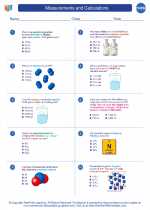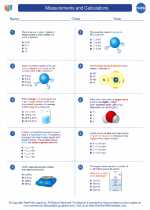Nucleation
Nucleation is the process by which a new phase or new molecular structure forms from a parent phase or solution. This process is important in various fields of chemistry, including crystal formation, phase transitions, and the behavior of colloidal suspensions.
Types of Nucleation
There are two primary types of nucleation: homogeneous nucleation and heterogeneous nucleation.
- Homogeneous Nucleation: In homogeneous nucleation, the new phase forms uniformly within the parent phase. This process typically occurs in a supersaturated solution or a supercooled liquid.
- Heterogeneous Nucleation: Heterogeneous nucleation involves the formation of the new phase at the surface of a foreign material, known as a nucleation site. This process is more common and often occurs at lower energy barriers compared to homogeneous nucleation.
Factors Affecting Nucleation
Several factors can influence the nucleation process, including:
- Temperature: Lower temperatures generally favor nucleation, as they reduce the kinetic energy of the molecules, allowing them to come together to form the new phase.
- Supersaturation/Supercooling: Higher levels of supersaturation in a solution or supercooling in a liquid can promote nucleation by providing an excess of molecules or atoms that can come together to form the new phase.
- Nucleation Sites: The presence of foreign materials or impurities can serve as nucleation sites, facilitating the formation of the new phase.
Applications of Nucleation
Nucleation has various practical applications in chemistry and materials science, including:
- Crystal Growth: Understanding nucleation is crucial for controlling the formation of crystals in chemical processes and the production of pharmaceuticals.
- Phase Transitions: Nucleation plays a role in phase transitions, such as the solidification of molten metals or the condensation of vapors.
- Colloidal Stability: In colloidal suspensions, nucleation influences the stability and behavior of particles dispersed in a medium.
Study Guide
When studying nucleation, it's important to focus on the following key points:
- Understand the difference between homogeneous and heterogeneous nucleation.
- Learn how temperature, supersaturation, and nucleation sites influence the nucleation process.
- Explore real-world applications of nucleation in different areas of chemistry and materials science.
- Practice identifying scenarios where nucleation is likely to occur and how it can be controlled or manipulated.
By mastering the concept of nucleation and its applications, you'll gain a deeper understanding of phase transitions, crystal formation, and the behavior of colloidal systems in the field of chemistry.
.◂Chemistry Worksheets and Study Guides High School. Measurements and Calculations

 Worksheet/Answer key
Worksheet/Answer key
 Worksheet/Answer key
Worksheet/Answer key
